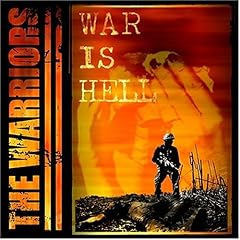
When we talk about the wars in Iraq, Afghanistan and the one Venezuelan President Hugo Chavez wants to start with Colombia, you get the impression that we are talking about something inevitable, something that is caused by a higher force of some sort.
Which is why we have to ask this question: “Is there a way of freeing humans from the fatality of war?”
The question was asked in a letter written by the famous scientist Albert Einstein to Sigmund Freud, the creator of psychoanalysis. At that point, a wonderful exchange of ideas emerged. That was in 1932, but the criticisms of the human inability to prevent war are equally valid today.
Let’s start with Chavez, undoubtedly one of the most colorful and dangerous characters in Latin America, who told his armed forces a few weeks ago, “We shouldn’t waste a day in our important mission; we should prepare ourselves for war and help our country prepare for war.”
Chavez believes the presence of American soldiers at Colombia’s seven bases is a threat to his country and himself. But, in fact, soldiers from the United States were in Colombia long before he came to power.
What is more, the real threat is Chavez, who, from within Venezuela, is protecting the rebels of the Revolutionary Armed Forces of Colombia (FARC) and also supporting them from within Colombian territory. This plus the alliance with Iran to create nuclear material in Venezuela, the purchase of multi-billion dollars worth of arms and the habit of the Venezuelan president to get involved in the internal affairs of other counties makes Chavez a key supporter of a war in the continent.
Why pursue the war with Colombia? The Venezuelan president, above all, is a soldier. Dialogue and diplomacy are not his strong points. But weapons are.
A conflict with Colombia, following the Castro formula, helps Chavez close ranks from within Venezuela, exploiting nationalism and distracting Venezuelans from their real problems, which include lack of water and electricity, persistent poverty (despite enormous resources in oil) and rampant violence and impunity.
In a letter to Einstein, Freud expressed the belief that to avoid war, it is important to have “a built-in fear of the consequences of war.” Chavez does not have that attitude. His education is to fight and kill. He is looking for his war. And he doesn’t care about destroying Venezuela in a hurry to make himself more powerful.
Former U.S. President George W. Bush also sought out a war and found it in Iraq. British officials have now confirmed that Bush was planning to attack Iraq even before the terrorist acts of September 11, 2001.
Eventually, Bush launched an attack on Iraq in March 2003, based on false reports. Iraqi leader Saddam Hussein never had anything to do with the terrorist acts that killed 3,000 Americans; he had no weapons of mass destruction.
That wasn’t important to him. Bush invaded Iraq and lost the support of the world and, far from making America a safer country, generated much hatred; ironically, terrorist threats against Americans increased. Bush, like Chavez, didn’t have a “culture of antiwar ” nor did he take into account the negative consequences of war.
And now it’s up to the current U.S. president, Barack Obama, to change the trend and be the president for peace, not the president for war. In his election campaign, he said he preferred diplomacy and dialogue to force. He even suggested talks with enemies of the U.S. But it hasn’t been possible for Obama to stop the inertia of a country still involved in two wars and with a long history of warfare.
Obama may have already set a date for the withdrawal of U.S. troops from Iraq, but America is still stuck in Afghanistan. Sending more troops there will only prolong the conflict, the deaths and the terrorist acts. Why not get out of Afghanistan?
There must be a different alternative to war. Where is it? Who dares to think about the alternative? No one is talking about it. Washington is silent.
War is a breakdown of diplomacy, of dialogue and of human intelligence. Already 77 years have gone by since Einstein and Freud complained of human incompetence to stop the impulse to destroy and kill, and it is clear that we haven’t learned anything since then.

Leave a Reply
You must be logged in to post a comment.